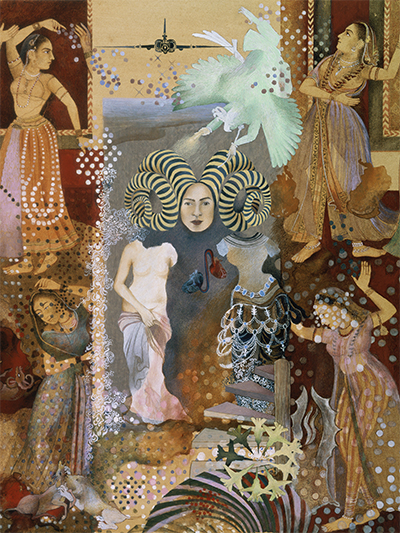Topic Director: Emily Wilson
College for Women Class of 1963 Term Professor in the Humanities
Professor of Classical Studies
Heritage is about history and about values. Heritage is what we want to save and fear to lose from the past. "Heritage," in its earliest English uses, implies the legal transference of material or financial property to a dead person's heirs, or the posthumous fate of the dead. In modern uses, heritage has come to suggest a precious subset of cultural property: the places, texts, ideas, memories, and traditions that may be neglected or erased as our world changes. Heritage is both fixed and portable, material and ephemeral, ancient and modern, lost and recoverable.
Material heritage may include homes, herds, burial places, and hunting territories, or assemblages as personal as grandmother’s china, father’s tools, or auntie’s medicines. Heritage can be fragile, but so durable that it may survive in a snippet of song, a fragment of paper, a single word of memory.
Moments of heritage loss and memory are often recorded in text, and literary or poetic traditions can themselves be claimed as the heritage of one group of people or another. Communal expressions of shared heritage animate unique cultures, languages, senses, landscapes, and memories. Heritage may be recorded and preserved in stone, and in monuments to victory, glimpsed through the names engraved, or the faces of uniformed men standing atop pedestals with weapons in hand, ready to be called forth in battle to once again rescue the nation.
Critical considerations of heritage loss and of heritage preservation are much needed, given the historical legacies of dispossession caused by settler-colonialism — which has often involved competing claims of heritage, property, and belonging. We will consider how to strive for the preservation of land and architectural heritage, to atone for the fraught legacy of excavating, disarticulating, and displaying human remains collected without consent. We will discuss how institutions and communities might collaborate to develop better practices and protocols for identifying, curating, displaying, and repatriating alienated cultural heritage.
We hope to focus on the future as much as the past, by inviting artists, activists, writers, historians, ecologists, museum professionals, and others to share efforts to reclaim and celebrate distinctive forms of heritage. The Wolf Center particularly invites proposals from those who are engaged in collaborative and restorative (rather than extractive) research that aims to revitalize the cultural heritage of Indigenous, Black, and other marginalized ethnic communities. Participants will be encouraged to devise inter-disciplinary approaches to creatively interrogate, debate, and otherwise grapple with this topic through such projects as, for example: revitalizing dormant languages; protecting architectural heritage; community-focused museums; repatriating sacred objects; promoting traditional knowledges; ecological restoration; and re-designing public monuments.
During a time when endangered ethnic heritage is actively being recovered — and when fraught histories of past attacks are increasingly being revealed — the Wolf Humanities Center topic for 2022–23 calls for artistic, scholarly, theatrical, literary, and other responses, as we seek to critically investigate, recover, and celebrate distinctive forms of material and ephemeral heritage.
Margaret Bruchac | Associate Professor of Anthropology; Coordinator: Native American & Indigenous Studies
Jamal Elias | Walter H. and Leonore C. Annenberg Professor of the Humanities; Professor of Religious Studies
Emily Wilson | College for Women Class of 1963 Term Professor in the Humanities; Professor of Classical Studies



